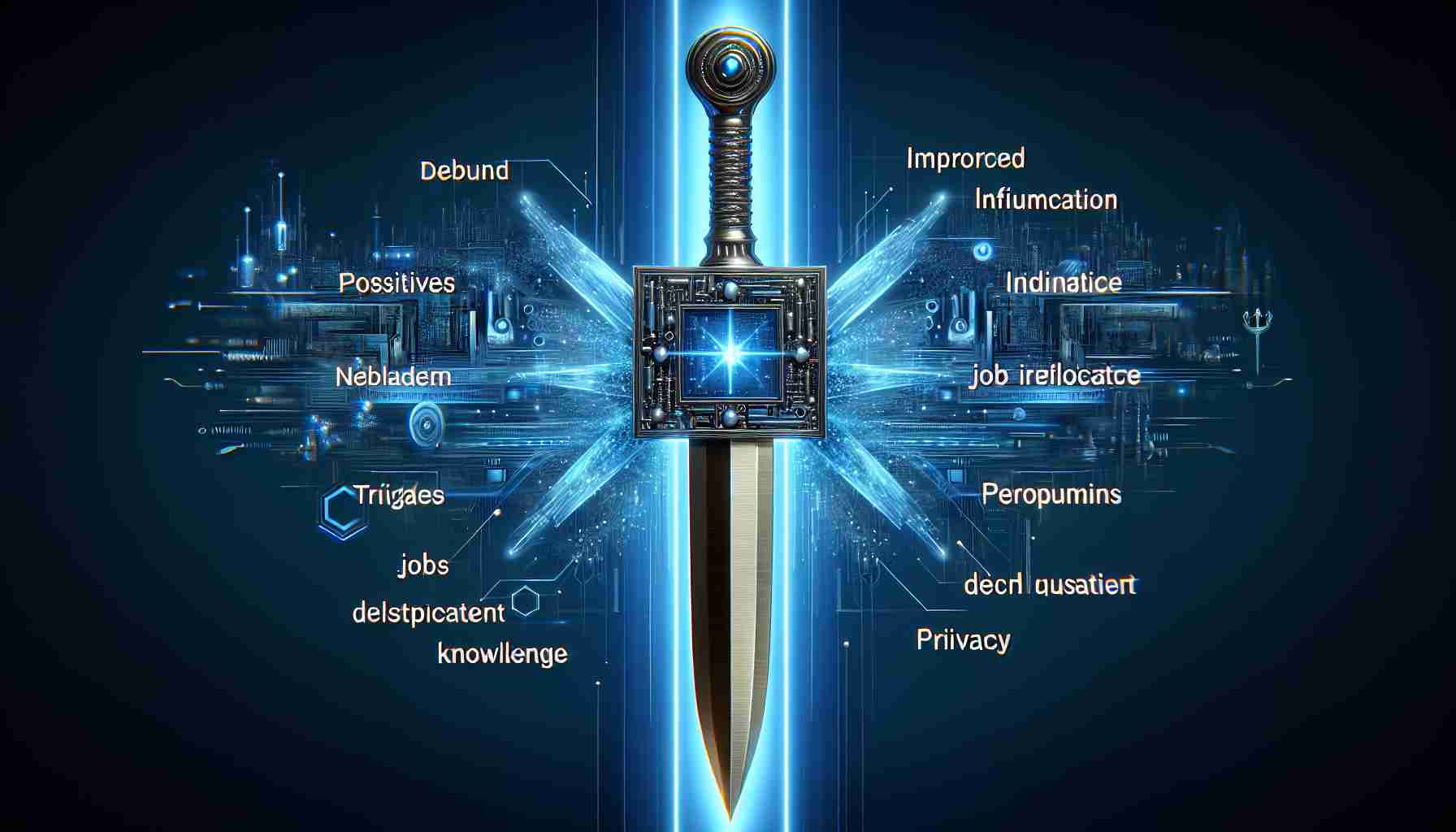Emerging concerns over Artificial Intelligence (AI) have sparked discussions among leading experts in the field. Geoffrey Hinton, a notable figure in AI development, has transitioned away from Google to voice his anxieties about potential dangers associated with the technology. He has been actively encouraging government intervention to temper risks and has suggested a universal basic income to support those who may lose their jobs to AI advancements.
In his public outreach, Hinton warns of a scenario where AI could make life-and-death decisions autonomously if given control over military weapons and vehicles. He anticipates a risk of an extinction event within the next five to twenty years unless proper controls are in place.
Conflicting views within the AI community add to the complexity of the debate. Yann LeCun, another esteemed AI expert, counters Hinton’s stance, asserting that AI is not a threat to humanity and that job displacement will be a temporary challenge rather than a permanent setback. Despite their differentiated perspectives on the danger AI poses, the urgency to address hypothetical threats remains a topic of widespread conversation within the tech community.
The nurturing of AI technology brings a spectrum of potential risks, including severe dependence on its decision-making capabilities, the reproduction of biases in automatic processes, and increased vulnerability to cyber-attacks. Furthermore, the socio-economic divide amplified by unequal access to AI technologies could drive greater societal inequality.
The specter of a superintelligent AI, surpassing human intellect without proper safeguards, looms as an extreme risk requiring serious preemptive measures.
AI unquestionably offers substantial benefits, yet acknowledging and managing its associated dangers is paramount. A collaborative approach among AI professionals, policymakers, and society as a whole is essential to mitigate risks and harness AI’s full potential responsibly.
Key Questions and Answers:
– What are the potential risks associated with the autonomous control of military weapons by AI?
AI in control of military operations could potentially operate with lethal efficiency without human moral considerations, leading to catastrophic outcomes if such technology is misused or malfunctions.
– What could be the societal impacts of widespread job loss due to AI advancements?
The displacement of workers by AI could lead to high unemployment rates, exacerbate social inequalities, and prompt the need for economic reforms like universal basic income to mitigate adverse effects.
– What are the divergent views within the AI community regarding AI’s threats to humanity?
While some experts warn about extreme existential risks, others view AI as a transformative tool for progress that, though disruptive in the short term, will ultimately benefit humanity.
– What is the “specter of a superintelligent AI,” and why is it a concern?
A superintelligent AI is a hypothetical development where AI surpasses human intelligence in all aspects, potentially leading to a scenario where humans cannot control or predict its actions.
Key Challenges and Controversies:
– AI Ethics and Control: Establishing ethical guidelines and control measures to ensure AI acts in humanity’s best interest is a considerable challenge given the complexity and unpredictability of advanced AI systems.
– AI Bias: AI systems can inherit and amplify biases present in training data, leading to discriminatory and unfair outcomes.
– Privacy: With AI’s ability to analyze vast amounts of data, privacy concerns are paramount, as there’s a risk of misuse of personal information.
– Global AI Arms Race: Nations may engage in a competitive race to develop superior AI technology, which could lead to international tensions and increased possibility of conflict.
Advantages:
– Efficiency: AI can automate and optimize tasks, leading to enhanced productivity and cost savings.
– Innovation: AI drives innovation in various domains, such as healthcare, transportation, and environmental protection.
– Personalization: AI enables more personalized services, from tailored recommendations to custom medical treatments.
Disadvantages:
– Job Displacement: Automation of tasks could displace workers, especially in routine and manual jobs.
– Security: AI systems are vulnerable to new forms of cyber-attacks that exploit their specific weaknesses.
– Control: As AI systems become more complex, ensuring they are safe and aligned with human values becomes increasingly difficult.
For further information on AI, here are the main domain links:
– OpenAI
– DeepLearning.AI
– Google AI
These links direct to organizations and entities at the forefront of AI research and development.
The source of the article is from the blog agogs.sk

